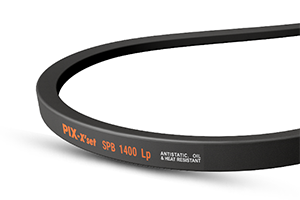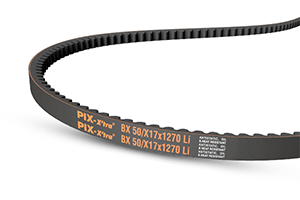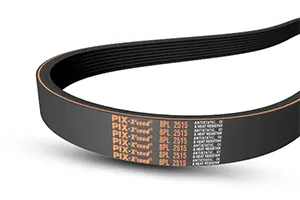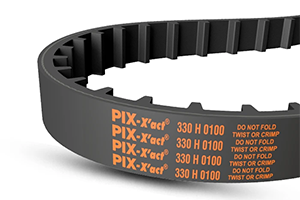Industrial Belts
Home - Industrial Belts
Industrial Belts
Sri Rama Marketing Associates is the leading distributor and exporters of Belts that are widely used in almost all industries. SRMA Industrial Belts are available in Wrap Construction, Raw Edge Cogged, Poly-V and Timing Belt construction, besides there is also a wide range of special construction Industrial Belts which are also termed as application-specific Industrial Belts.
Sri Rama Marketing Associates also provide a complete solution along with Industrial Belts, with matching set of Pulleys, Bushes and couplings. SRMA industrial Belts are widely used in mining and construction, power generation units, steel, cement, ceramic, textile, flour mills, oil and petroleum, machine tools and an array of applications.
SRMA Industrial Belts are known for their quality, reliability and an extended service life.
FAQ - Industrial Belts
Industrial Belts are flexible bands made of various materials, including rubber, polymers, or metals, designed for power transmission, conveying materials, or facilitating mechanical operations in industrial machinery.
There are various types, including V-Belts, Timing Belts, flat Belts, conveyor Belts, ribbed Belts, and specialty Belts, each serving specific purposes in different industrial applications.
They are used in manufacturing plants, factories, conveyor systems, agricultural machinery, automotive assembly lines, and other industrial setups for tasks like power transmission, material handling, and more.
Industrial Belts can be made from rubber, polyurethane, PVC, nylon, steel, or other materials, often reinforced with fibers or cords for added strength and durability.
Industrial Belts are designed for various industrial applications like power transmission and material handling, while automotive Belts are specifically for vehicles, such as Timing Belts for engine operation.
Replacement intervals depend on usage, load, environmental conditions, and the type of belt. Manufacturers often provide guidelines; however, regular inspection and adherence to maintenance schedules are crucial.
Signs include visible wear or damage, loss of tension, increased noise during operation, reduced efficiency, or reaching the recommended service life specified by the manufacturer.
Replacing industrial Belts requires specific tools and expertise. It’s recommended to have trained technicians or maintenance personnel perform replacements for proper installation and alignment.
Regular inspection for wear, proper tension adjustment, lubrication (if applicable), and following manufacturer-recommended maintenance schedules are key for maximizing belt lifespan and efficiency.
Industrial Belts are designed to function in a range of temperatures and conditions, but extreme heat, cold, moisture, or exposure to certain chemicals can affect their performance and longevity.




